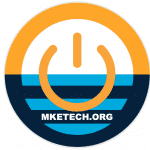by Laura Schmidt, Chief Talent Development Officer …
Technology is rapidly transforming traditional, essential industries through the embedding of technology into products and processes. This trend of “every business as a tech business” has accelerated the need for tech talent in the region.
 The Milwaukee Tech Hub Coalition is comprised of member companies and non-profit organizations committed to doubling the tech talent in the greater MKE region by 2025 to ensure that supply keeps up with projected demand. This will require a broader reskilling of our existing, diverse talent base. Employers are encouraged to rethink talent acquisition in a manner that demonstrates a commitment for local tech talent development in alignment with the MMAC ‘Region of Choice’ pledge. Reskilling into tech (and/or tech enabled) occupations is important as these positions provide the greatest likelihood for upward mobility and is currently the fastest growing area of employment in Wisconsin.
The Milwaukee Tech Hub Coalition is comprised of member companies and non-profit organizations committed to doubling the tech talent in the greater MKE region by 2025 to ensure that supply keeps up with projected demand. This will require a broader reskilling of our existing, diverse talent base. Employers are encouraged to rethink talent acquisition in a manner that demonstrates a commitment for local tech talent development in alignment with the MMAC ‘Region of Choice’ pledge. Reskilling into tech (and/or tech enabled) occupations is important as these positions provide the greatest likelihood for upward mobility and is currently the fastest growing area of employment in Wisconsin.
While a shared commitment to reskilling initiatives is good for the community, it is also good for business as those that employ talent from non-traditional talent sources report an overall lower acquisition cost, greater employee engagement, and improved retention than those from more traditional sources. Teams also report increased innovation from the introduction of new perspectives and ideas.
Non-traditional talent sources include both college grads and those that may not yet have had the ability to go. The Higher Education Regional Alliance is committed to working with industry to ensure a strong talent pipeline that supports the region’s workforce development and economic development goals. However, the projected gap in tech workers will not be filled by those in the current pipeline. In addition, many college students chose their area of study on a number of factors that may leave them under/unemployed following graduation. New tech reskilling programs can help them gain access to a tech career without having to invest in second degree. There are other tech roles that don’t require a college degree but are left unfilled with the hope of attracting talent from outside of the region vs. rethinking how we might develop new pathways into these careers.
 We are starting to see staffing firms embracing the value of non-traditional talent sources as the new normal. Employers now have the choice of paying those firms to develop diverse entry level talent with the hope of acquiring it someday or growing their own. The shift to remote work has opened new doors to virtual ‘just-in-time’ learning as well. Employers are rethinking how to reskill their incumbent workforce as another non-traditional talent source.
We are starting to see staffing firms embracing the value of non-traditional talent sources as the new normal. Employers now have the choice of paying those firms to develop diverse entry level talent with the hope of acquiring it someday or growing their own. The shift to remote work has opened new doors to virtual ‘just-in-time’ learning as well. Employers are rethinking how to reskill their incumbent workforce as another non-traditional talent source.
It is important to note that training programs that ignore barriers to access and/or the need for a pathway to employment with effective transitional services are rarely successful. That is where partnerships with our local workforce development boards, charitable foundations, community organizations, and employers who embrace the need for change within their own organizations is so important.
The Coalition recently developed a ‘Reskilling Opportunities’ page to start consolidating these opportunities for those seeking new opportunities. We have many programs currently being evaluated to build additional capacity as well. If you are an employer who would like to engage in our collective efforts, please check out the characteristics of a ‘Model Employer’ on our website and reach out for a consultation so that we can connect you to initiatives aligned to shared objectives.
Please subscribe to our newsletter and follow us on LinkedIn and Twitter to stay up to date.
Related articles:
- A study by McKinsey in 2019 indicates that organizations in the top quartile for ethnic diversity are 36% more likely to outperform industry averages than those in the bottom quartile.
- The World Economic Forum (WEF) published an report which provides a roadmap on the cost levers associated with reskilling. While there is a cost to instruction, there are offsetting benefits of lower acquisition costs and faster productivity for the new employees.
